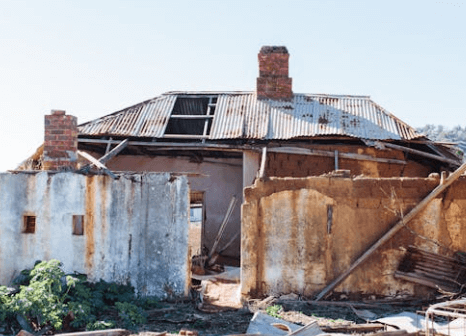Across Florida, tens of thousands of vacant homes sit empty, creating significant challenges for neighbors and communities. These abandoned properties often attract code violations, invite squatters, and can drag down the value of surrounding homes, making it crucial to know the proper steps to take. Navigating this issue requires understanding who to contact about abandoned property in Florida, which typically involves city code enforcement for safety issues and the county property appraiser to identify the last known owner. Figuring out this process can save you valuable time and prevent further neighborhood decline. For property owners overwhelmed by a vacant house, there is a straightforward solution that bypasses the bureaucratic maze. Steve Daria and Joleigh, experienced real estate investors and cash house buyers, specialize in purchasing properties as-is, providing a quick and reliable solution. If you are struggling with a vacant property or want to report one, understanding who to contact about abandoned property in Florida is your first step. To explore a hassle-free cash sale and resolve your situation quickly, book a free, no-obligation discussion with Steve and Joleigh today.
Key Points
- Contact Local Law Enforcement: If you notice abandoned property, your first step should be to notify the local police or sheriff’s office. They can check if the property is genuinely abandoned or involved in any legal issues.
- Reach Out to Code Enforcement: The local code enforcement department is responsible for managing neglected properties. They can inspect the property, ensure it meets safety standards, and address any violations.
- Speak with the County Property Appraiser: The property apappraiser’sffice can provide information about the ownership of the abandoned property. This can help you figure out who is responsible for maintaining it.
- Consult a Real Estate Attorney: Claiming ownership of an abandoned property requires navigating a legal process, and a real estate attorney can provide the necessary expertise and guidance. They will help you understand and complete the steps needed to legally claim or purchase the property.
- Contact a Local Government Office or Housing Authority: Often, local government offices or housing authorities can advise you on who to contact about abandoned property in Florida. They might offer resources or connect you with the right agencies to address your concerns.
Understanding Abandoned Property Laws in Florida
Before delving into who to contact about abandoned property in Florida, it’s crucial to understand the state’s laws regarding abandoned properties.
In Florida, an abandoned property is generally defined as one that has been vacated by its owner for an extended period with no intention of returning or maintaining it.
Florida’s abandoned property laws state that the owner of an abandoned property must be given notice before any action can be taken.
This includes posting a notice on the property and sending a written notice to the owner’s last known address. It’s important to note that Florida has different laws for abandoned properties.
For example, abandoned vehicles fall under laws that are different from real estate properties. It’s essential to research the specific rules that apply to your situation before taking any action.
How do I determine if a property is legally considered abandoned in Florida?
In Florida, a property may be deemed abandoned if it shows clear signs of vacancy, such as overgrown yards, accumulated mail, or utilities that have been turned off for an extended period.
However, legal determination involves checking the property’s tax status, mortgage status, and any records of the owner’s relocation or death.
Can I claim ownership of an abandoned property in Florida?
Claiming ownership of an abandoned property, known as adverse possession, requires meeting specific legal criteria, including openly living on and continuously improving the property as defined by state law.
To explore this option, legal advice from a property attorney is recommended.
Recognizing Signs of Abandoned Property
Identifying abandoned properties can be straightforward if you know what to look for.
Signs of abandonment may include overgrown vegetation, boarded-up windows, deteriorating structures, and lack of maintenance.
These properties detract from a neighborhood’s appeal and can also attract crime and vandalism.
Awareness of these signs and reporting potential abandoned properties to the appropriate authorities is essential.

Contacting Local Authorities
One of the first steps to take when encountering an abandoned property in Florida is to contact local authorities. This typically involves reaching out to the municipality where the property is located.
Municipal authorities, such as code enforcement offices or building departments, enforce local ordinances and regulations related to property maintenance and safety.
They can provide information about the property’s ownership and existing permits or violations.
In some cases, the municipality may also have a designated department for abandoned properties, which can assist in identifying the appropriate course of action.
It is important to note that contacting local authorities should always be done with respect and courtesy. Understanding their role and following proper communication channels will help facilitate a smoother process.
Reporting Abandoned Property
When reporting an abandoned property to local authorities, provide as much information as possible about the property’s location and condition.
This information helps officials assess the situation and take appropriate action.
Additionally, some municipalities may have online reporting systems or dedicated hotlines for reporting abandoned properties, making the process more accessible for concerned citizens.
Involving Law Enforcement
In cases where abandoned properties pose immediate safety concerns or are associated with criminal activity, involving law enforcement may be necessary.
Local police departments can investigate potential criminal activity, such as trespassing, vandalism, or illegal occupancy, and take appropriate enforcement actions.
They can also help secure the property and prevent further damage or safety hazards. However, it is important to note that involving law enforcement should only be done as a last resort after all other options have been exhausted.
Communication and collaboration with law enforcement should always be approached respectfully and with a clear understanding of their role in addressing abandoned properties.
Seeking Legal Assistance
Navigating the complexities of abandoned property issues in Florida may require legal expertise, especially if ownership or title disputes arise.
Seeking advice from a specialized real estate attorney who is well-versed in property law can offer valuable support in resolving legal matters concerning abandoned properties.

Contacting Property Owners or Lienholders
In some cases, identifying and contacting the property owner or lienholder may be necessary to address the abandonment issue.
Property records maintained by county tax assessors or property appraisers can provide information about the current owner or any existing liens on the property.
Contacting the owner or lienholder can help determine ownership responsibilities and potentially secure permission to access and clean up the abandoned property.
**NOTICE: Please note that the content presented in this post is intended solely for informational and educational purposes. It should not be construed as legal or financial advice or relied upon as a replacement for consultation with a qualified attorney or CPA. For specific guidance on legal or financial matters, readers are encouraged to seek professional assistance from an attorney, CPA, or other appropriate professional regarding the subject matter.

